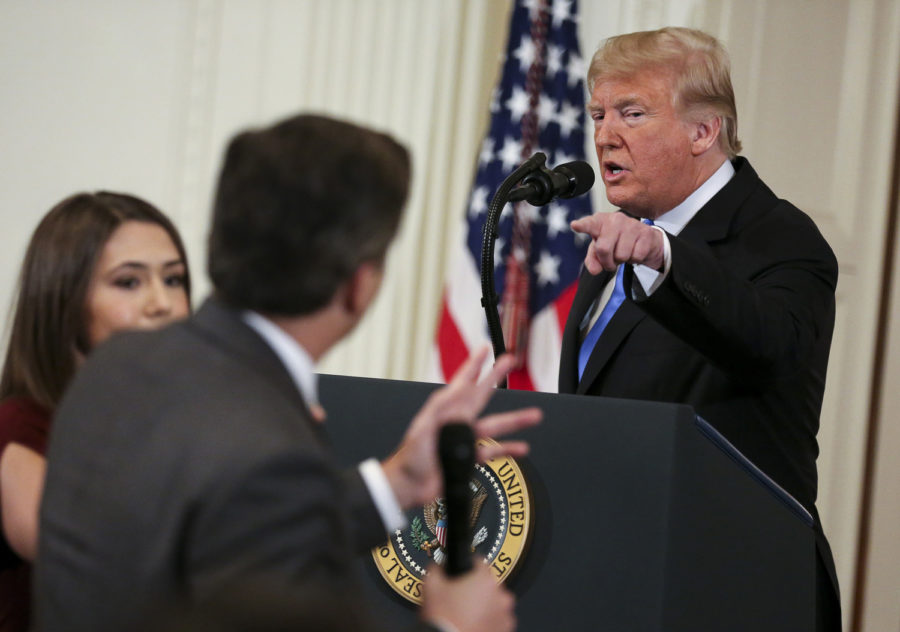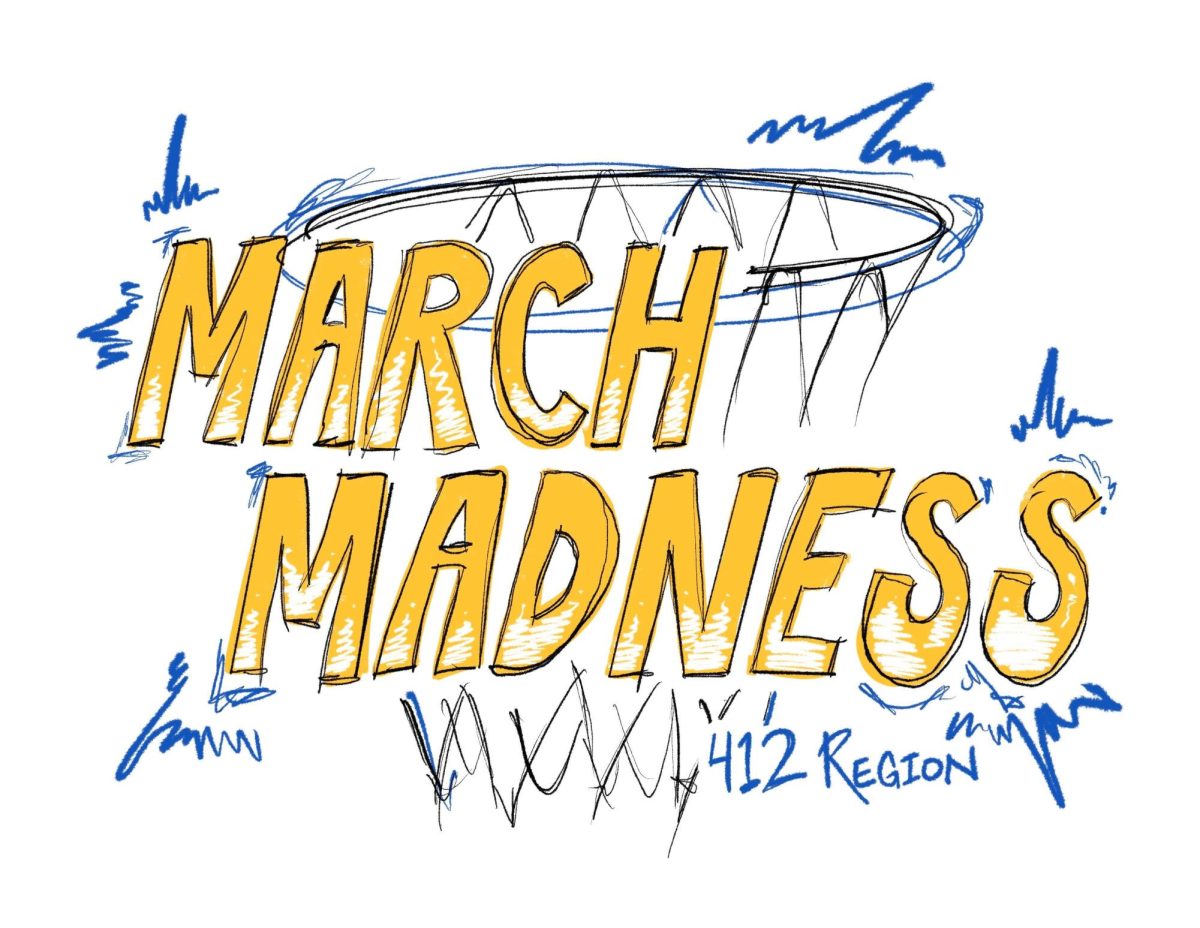Editorial: Attack on Acosta is an attack on all media
A White House staff member (left) tries to take away the microphone from CNN White House correspondent Jim Acosta during an exchange with President Donald Trump on Nov. 7 in Washington, D.C.
November 9, 2018
Melissa Chan, reporter for The New York Times, has had her press credentials denied by China, who has an authoritarian government. But on Thursday she expressed her deep concern that the same thing is happening in the United States.
President Donald Trump’s administration has a history of attacking the press, but its most recent attack is alarmingly reminiscent of ways authoritarian countries like China treat the press. In revoking CNN reporter Jim Acosta’s White House press pass following a press conference Thursday, the administration poses a threat to journalism and our democracy.
Trump held a lengthy news conference the day following midterm elections, during which he took a question from Acosta regarding the caravan of migrants making their way through Latin America to the U.S. border. When Acosta attempted to pose a follow-up question, Trump decided he’d had enough and a female White House aide attempted to take the reporter’s microphone from his hand.
The controversy comes from whether or not Acosta touched the female reporter. White House press secretary Sarah Huckabee Sanders released a statement via Twitter saying that “President Trump believes in a free press and expects and welcomes tough questions of him and his Administration. We will, however, never tolerate a reporter placing his hands on a young woman just trying to do her job as a White House intern.”
Acosta retweeted Sanders’ statement with the words, “This is a lie.”
Sanders’ tweet blew up on Twitter because many pointed out that the video she tweeted of the alleged incident seemed doctored to show Acosta touching the intern. CNN itself issued a statement to say that “Press Secretary Sarah Sanders lied. She provided fraudulent accusations and cited an incident that never happened. This unprecedented decision is a threat to our democracy and the country deserves better.”
CNN is right — revoking Acosta’s press pass is a direct threat to the media and our democracy. It sends the message that the White House can control the press and the questions journalists ask, which is unacceptable.
Sanders’ suddenly strict stance against harassment is nothing short of ironic coming from an administration whose president has been accused by 22 women of sexual misconduct. In fact, it’s insulting that the White House would share a purposely distorted video in order to turn itself into the victim in this situation after its long history of treating allegations of sexual harassment and assault in a dismissive manner.
White House reporters can fight back against this unfair treatment by boycotting press conferences. It wouldn’t be the first time — last year when CNN and The New York Times were barred from a press conference, the Associated Press and Time magazine did not attend the conference in solidarity.
As Chan pointed out on Twitter Thursday, it starts with Acosta but “tomorrow it’ll be Journalist X. And later Journalist Y and Z. It can happen very quickly.”
Trump has issued a threat to media in America and journalists cannot sit idly by as we lose our right to do our job.



